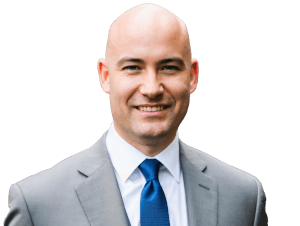Georgia state law requires nursing homes to do all that is reasonably possible to prevent physical assault and protect residents from abuse. Under the law of negligence, a nursing home that fails to protect residents from violence and abuse can be held responsible for any instances of physical assault that occur, since the home should have done everything in its power to prevent such incidents.
For a nursing home to be found at fault in a case of physical assault, the injured party will have to prove that the nursing home was negligent – meaning nursing home staff and administration neglected their duty to provide residents with proper care. For example, if the nursing home was lax in monitoring nursing home interactions, or if it failed to notice or act on clear signs of abuse, the facility will likely be held responsible for the resident’s injuries, pain, and suffering.
In such a case, the nursing home must compensate the victim of physical assault, which means covering the cost of any related medical bills and providing financial compensation for both physical and mental pain, trauma, and suffering. A Georgia nursing home physical assault lawyer could help recover these damages on behalf of a victim and their family.
Warning Signs of Physical Assault
Signs of physical assault can take several forms. There may be obvious signs that are more physical in nature, or there may be more subtle signs in a victim’s mental and emotional state. Physical signs of assault include bruises, cuts, bleeding, welts, burns, fractures, and grip marks. Other less obvious signs of physical assault include depression, anxiety, fearfulness, and emotional isolation.
A victim of physical assault may show fear of the abuser or appear reluctant to be left alone with that person. They may also be unwilling or unable to give an explanation for their injuries. And they may seem emotionally unstable or complain of pain.
Changes in behavior can also signal physical assault. A victim of physical assault may become withdrawn and experience a disconnect with those around them. If a person suddenly isolates themselves or becomes uncharacteristically silent or withdrawn, they may be a victim of physical assault.
Bloody, stained, or town clothing or bedding may also signal physical assault. A victim of physical assault who is sedentary may sustain a fracture or other serious injury.
For a free legal consultation with a nursing home physical assault lawyer serving Georgia, call

Preventing Assaults in Georgia Nursing Homes
To prevent physical assault, nursing homes should monitor both residents and staff and be alert for any warning signs, such as injuries or changes in a resident’s mental state. Physical assault may come from another nursing home resident, or it may come from a caregiver or staff member. During resident interactions, nursing home staff should be present and step in immediately to disrupt any violence or abuse.
When physical assault occurs in nursing homes, it’s usually because the nursing home has too few staff members or not enough space in which to accommodate all the nursing home’s residents. When residents are forced into close quarters and denied privacy, there is a potential for them to become upset and possibly violent. Therefore, nursing homes should give each resident adequate privacy and space, and not take on more residents than the facility can comfortably accommodate.
Additionally, when a nursing home is inadequately staffed, caregivers may fail to notice signs of physical assault or just not have the energy to deal with it. Nursing homes should train caregivers to recognize signs of physical assault and intervene effectively.
Georgia Nursing Home Physical Assault Lawyer Near Me (678) 823-7678
Causes of Physical Assault in Nursing Homes
Physical assault seems like something that should never occur in nursing homes, but the sad truth is that conditions in some nursing homes contribute to physical assault and other instances of abuse. Many nursing home residents are physically incapable of protecting themselves from assault, which puts them in a vulnerable situation.
Physical assault from caregivers usually occurs in nursing homes that lack resources like money, time, and space. When a nursing home is struggling financially, it may be unable to hire enough staff to properly care for all the residents. In this situation, there are simply not enough caregivers to constantly monitor residents, meaning that instances of physical assault may go unnoticed. Additionally, when there are too few staff, they tend to be overworked. Sadly, this sometimes leads to caregivers becoming frustrated and abusing residents.
Another thing that contributes to physical assault is lack of proper screening for nursing home staff. If a nursing home is pressed for time or operating on a limited budget, it may hire staff without screening them thoroughly enough first. When this happens, the nursing home may fail to check an employee’s criminal history or simply ignore it during the hiring process.

Take Action Against Nursing Home Assault by Calling a Georgia Attorney
If you suspect your loved one has been a victim of physical assault, you should speak to them before taking further action. Be sensitive to their feelings; many victims of physical assault or abuse are reluctant to talk about it. Respect your loved one’s wishes and listen to what they have to say, but also pay attention to how they respond to your questions, and be alert for any signs of physical abuse or assault.
If after speaking to your loved one, you still suspect they have been a victim of physical assault, speak to the nursing home manager. Tell them about your suspicions, any signs you have noticed, and what your loved one told you. After hearing your concerns, the manager should take action immediately to remove the abuser and protect your loved one from further incidents of assault.
You may also want to report the incident to Healthcare Facility Regulation, at 1-800-878-6442. Additionally, if you suspect your loved one has been a victim of physical assault, and you are unhappy with how the nursing home is handling it, or feel that your loved one’s legal rights are being violated, please call and speak to one of our experienced Georgia nursing home physical assault lawyers for a consultation.




